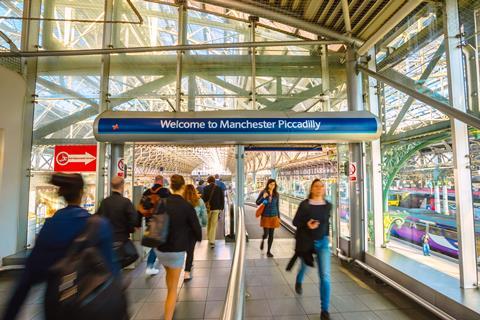Transport for the North says region will have to wait longer for improvement works to begin
Northern leaders have warned government that delays in publishing the Integrated Rail Plan have set back the Northern Powerhouse Rail initiative by at least a year.
Transport for the North said the business case for the estimated £40bn rail project will not be submitted before next March, a year later than promised.

The organisation also raised concerns these delays would have a knock-on effect on the programme and start of construction, which involves upgrading and building new rail lines to improve links in the North of England.
Last winter, the Department for Transport (DfT) requested the submission of the strategic outline case for Northern Powerhouse Rail be delayed until after the Integrated Rail Plan (IRP) was published.
The plan is expected to demonstrate how Northern Powerhouse Rail will be integrated with HS2 and other rail projects.
The strategic outline case had been due to be submitted in March this year but now Transport for the North has warned of a 12 month delay or “potentially much later”.
At the end of last year, the DfT argued the scheme’s delivery would be improved if the business case was consistent with the IRP’s funding framework.
It said it would “allow more rapid alignment around single route options than envisaged in current plans – which assume a further 12 months’ work in some cases before detailed design work can begin”.
But the plan, originally meant to be published by February at the latest, is not expected to be see the light of day until after the summer parliamentary recess which ends on 6 September.
Transport for the North is now concerned now the plan will be delayed further in order to publish it alongside the three-year comprehensive spending review this autumn.
It said: “In the worst possible case, the [strategic outline case] would be complete within 18 months of IPR publication. Consequently, the earliest possible strategic outline case […] would now be submitted 12 months later than previously programmed, but potentially much later.”
A DfT spokesperson said: “The Integrated Rail Plan will be published soon.” She said the government remained committed to the NPR programme and that once the IRP is published, the government will work closely with Transport for the North to finalise a strategic outline business case for the project.
Dan Jarvis, South Yorkshire mayor, said the ongoing delay to the IRP was “completely unacceptable”.
He added: “I struggle to see how this government can claim to be serious about ‘levelling up’ the North, when there are so many question marks about something as basic as improving rail connections between our towns and cities.
“We desperately need the government to provide clarity on their plans for HS2 and Northern Powerhouse Rail serving our region. They’re prolonging the uncertainty for businesses and people living on the proposed HS2 route in the North.”
It comes as the Infrastructure and Projects Authority warned the plans for the Northern sections of HS2 may need significant changes before they can be completed.
The organisation’s annual study gave the lowest red rating to the northern section of HS2, phase 2b, which means that successful delivery of the scheme “appears to be unachievable”.
Phase 1, London to the Midlands, and Phase 2a, the Midlands to Crewe, have been given an amber/red and amber rating respectively.
This means “successful delivery of the project is in doubt, with major risks or issues apparent in a number of key areas” for the southern part of the project, while “successful delivery appears feasible but significant issues already exist, requiring management attention” for the Crewe spur.
The authority, which jointly reports to the Cabinet Office and Treasury, evaluates how likely it is that schemes will be completed on time and on budget. It employs a five-point scale to give projects a risk rating.
Its latest report said four transport schemes were on the second-lowest amber/red rating, with the Midlands Rail Hub, another scheme that will have its future decided by the IRP.



























No comments yet